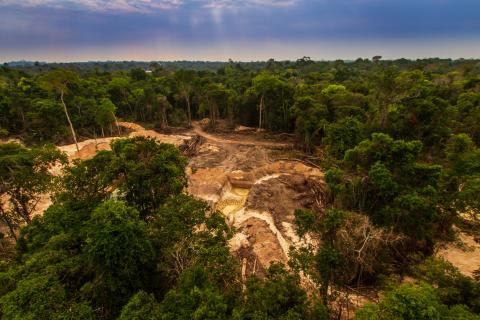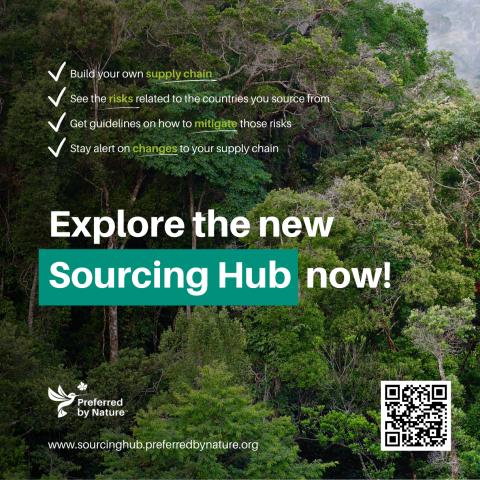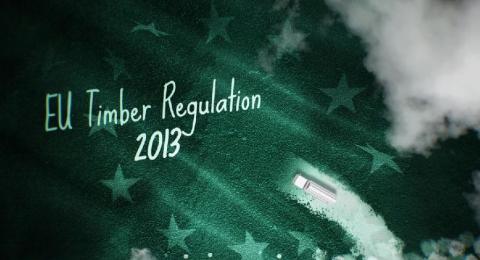Corruption Index: Nine EU countries “unspecified risk” for timber legality
On 1 December 2011, Transparency International released the results of the Corruption Perceptions Index (CPI) 2011. The index serves as an important resource for companies assessing risk when sourcing Controlled Wood for their FSC-certified products.
 The index scores 183 countries and territories from 0 (“highly corrupt”) to 10 (“very clean”) based on perceived levels of public sector corruption. It uses data from 17 surveys that look at factors such as enforcement of anti-corruption laws, access to information and conflicts of interest.
The index scores 183 countries and territories from 0 (“highly corrupt”) to 10 (“very clean”) based on perceived levels of public sector corruption. It uses data from 17 surveys that look at factors such as enforcement of anti-corruption laws, access to information and conflicts of interest.
In the new CPI, New Zealand ranks highest, followed by Denmark and Finland. Somalia and North Korea (included in the index for the first time) rank lowest.
For Costa Rica, Lithuania and Oman, the CPI has fallen below 5 since the last CPI was released in 2010.
The CPI in Rwanda and Bahrain has risen over 5; however, none of these countries are forest-rich.
According to the FSC Controlled Wood standard, these countries are now to be considered as “unspecified risk” for legal timber harvesting. A country can be considered as low risk only if the CPI for the given country is equal to or above 5.
This change in CPI is very important for companies who purchase controlled timber from Lithuania or Costa Rica, since field verification of legal harvesting is required for sourcing controlled wood from countries with a CPI below 5. Lithuania’s CPI moved above 5 as recently as last year, but has now fallen to 4.8. Oman is not considered to be an important country in terms of forestry.
Risk of illegal timber harvesting in Europe
Nine EU countries received a CPI score below 5: Bulgaria, the Czech Republic, Greece, Hungary, Italy, Latvia, Lithuania, Romania, and Slovakia. “These figures indicate that there is risk of illegal harvesting in several locations within the EU. This may be of significance in relation to the fast approaching EU Timber Regulation that aims to halt the entrance of illegal timber into the EU marketplace”, notes NEPCon’s timber legality expert, Christian Sloth.
“Although a low CPI does not necessarily imply illegal logging, the corruption level will naturally influence how the risk of illegal harvesting in a country is perceived. All forest operations located in the EU are required to have Due Diligence systems in place because they are "first placers" of timber products on the EU market; however, the specific Due Diligence requirements pertaining to EU-based forest operations remain unclear”, explains Mr Sloth.
“Hopefully this will be clarified when the EU releases its Delegated Acts on the Timber Regulation on June 3 2012”. Mr. Sloth adds that US-based buyers of European timber products could also encounter problems under the US Lacey Act, unless they take the risk of illegal harvesting in certain European countries duly into account.
With CPIs of 3.3 and 3.4 respectively, debt-ridden Greece and Italy show some of the highest corruption levels in Europe. Some EU countries that have moved upwards of the CPI threshold of 5 in previous years, such as Poland and Slovenia, have managed to maintain their good score.
Free online tool to assess risk when buying Controlled Wood
 The Global Forest Registry is a free online source of information on the risk of sourcing unacceptable wood from around the world, covering all five categories used in the FSC Controlled Wood system. The Registry has been developed jointly by NEPCon and FSC.
The Global Forest Registry is a free online source of information on the risk of sourcing unacceptable wood from around the world, covering all five categories used in the FSC Controlled Wood system. The Registry has been developed jointly by NEPCon and FSC.
Map from the Global Forest Registry showing the risk of illegal harvesting, incorporating the new CPI figures. The Corruption Perceptions Index is used alongside other parameters to assess the risk of illegal timber harvesting under the FSC Controlled Wood system. The green areas indicate low risk of illegal harvesting, while the red areas indicate "unspecified risk", where field verification of legal harvesting is required for buying controlled material.
Source: Transparency International.



